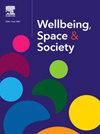东南亚国家养老院的提供:一个系统的回顾
IF 2.2
Q2 GEOGRAPHY
引用次数: 0
摘要
目的本系统综述整合了研究证据,展示了物质和社会环境如何促进东南亚(SEA)居住在养老院(RCHs)的老年人的体验和福祉。背景东南亚地区对养老院的需求日益增长,而此时人们对护理环境的质量显然缺乏了解。对于文化驱动的期望和物理和社会护理环境非常不同的SEA环境,这些发现的相关性知之甚少。方法系统检索2000 - 2023年间发表的文献,获取研究证据。结果来自东南亚国家的35项研究表明,人造环境和自然环境对居民的生活体验和整体幸福感都有显著影响。护理环境中的互动和关系对居民的生活质量至关重要,而这些环境的设计和使用中的文化微妙之处突出了隐私和尊严观念的地区差异如何极大地影响健康结果。含义与结论本综述强调了文化差异如何影响养老院环境的设计和使用,隐私和尊严概念的地区差异显著影响幸福感结果。SEA模式与西方方法之间的这些差异,让我们更深入地了解了促成SEA地区RCHs成功的文化特定因素。获得这样的理解对于制定既符合文化又有效的护理实践至关重要,这些实践是专门为满足生活在东南亚安老院中的不同老年人社区的独特需求而量身定制的。本文章由计算机程序翻译,如有差异,请以英文原文为准。
Care home provision in southeast Asian countries: A systematic review
Aim
This systematic review consolidates research evidence showing how the physical and social environments contribute to the experiences and wellbeing of older adults living in Residential Care Homes (RCHs) in Southeast Asia (SEA).
Background
The growing demand for RCHs in SEA is occurring at a time when a lack of understanding of the quality of the care environment is evident. Little is known about the relevance of these findings for SEA settings where culturally-driven expectations and the physical and social care environments are very different.
Method
A systematic search of the literature published between 2000 to 2023 was undertaken to capture research evidence.
Results
35 studies reviewed from SEA countries indicate that both constructed and natural surroundings significantly impact residents' life experiences and overall wellbeing. Interactions and relationships within the care settings appear vital for residents' quality of life while cultural subtleties in the design and usage of these environments highlight how regional differences in perceptions of privacy and dignity greatly affect wellbeing outcomes.
Implication and Conclusion
The review highlights how cultural differences influence the design and use of residential care home environments, with regional variations in concepts of privacy and dignity significantly affect well-being outcomes. These distinctions between the SEA model and Western approaches offer deeper insights into the culturally-specific factors contributing to the success of RCHs in SEA. Gaining such understanding is crucial for formulating care practices that are both culturally attuned and effective, tailored specifically to meet the distinctive needs of diverse older communities living in a RCH in SEA.
求助全文
通过发布文献求助,成功后即可免费获取论文全文。
去求助
来源期刊

Wellbeing Space and Society
Social Sciences-Social Sciences (miscellaneous)
CiteScore
2.70
自引率
0.00%
发文量
46
审稿时长
124 days
 求助内容:
求助内容: 应助结果提醒方式:
应助结果提醒方式:


